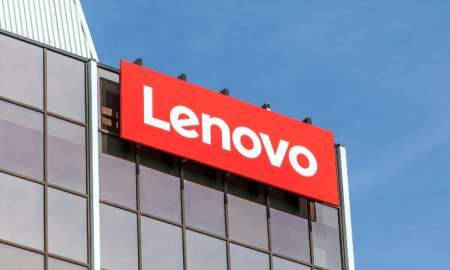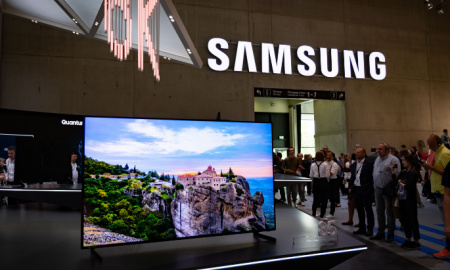Sign up for our free daily newsletter
YOUR PRIVACY - PLEASE READ CAREFULLY DATA PROTECTION STATEMENT
Below we explain how we will communicate with you. We set out how we use your data in our Privacy Policy.
Global City Media, and its associated brands will use the lawful basis of legitimate interests to use
the
contact details you have supplied to contact you regarding our publications, events, training,
reader
research, and other relevant information. We will always give you the option to opt out of our
marketing.
By clicking submit, you confirm that you understand and accept the Terms & Conditions and Privacy Policy
The England and Wales High Court has handed down a hotly anticipated decision in Lenovo v InterDigital, ordering Lenovo to pay InterDigital a lump sum of $138.7m for a fair reasonable and non-discriminatory (FRAND) licence to use InterDigital’s standard essential patents (SEPs).
The lawsuit dating from 2019, concerned whether the offer from technology firm InterDigital to Chinese-owned Lenovo to use its SEPs in cellular technology was FRAND. And, if not, what terms were FRAND for a licence to Lenovo of the InterDigital patent portfolio?
The written judgment by Hon Mr Justice James Mellor concentrated on the following two offers: InterDigital’s 5G extended offer and Lenovo’s lump sum offer. The 5G extended offer embodies the ‘program rates’ which InterDigital has published on its website since early 2020, as part of its ‘transparency’ initiative.
The lump sum offer involves Lenovo paying ‘$80m +/-15% for all sales in the 6-year term to the end of 2023 with a full release for all past sales for no additional consideration.’
In his judgment on 16 March, Mellor concluded: ‘Based on the outcome from my comparable analysis, I find that neither InterDigital’s 5G Extended Offer nor Lenovo’s Lump Sum Offer were FRAND or within the FRAND range.’
He said: ‘ I consider the willing licensor and willing licensee would agree a single per unit rate which would reflect all the considerations I have discussed above. I conclude that rate is $0.175 per cellular unit.
‘The calculation model provided to me by the experts included sales figures for Lenovo going back to 2007. The $0.175 rate yields a lump sum payment of $138.7m.’
The ‘top-down’ approaches to work out a FRAND licence have been applied in various cases including UPHC, TCL v Ericsson, In Re Innovatio IP Ventures and Huawei v Conversant. Mellor, however, found ‘no value in InterDigital’s top-down cross check in any of its guises.’
InterDigital was represented by leading IP set 8 New Square’s Adrian Speck KC, Mark Chacksfield KC, Isabel Jamal, Thomas Jones and Edmund Eustace, instructed by Gowling WLG for the claimants.
Lenovo was represented by 8 New Square’s Daniel Alexander KC, Blackstone Chambers’ James Segan KC and Ravi Mehta and 8 New Square’s William Duncan, instructed by Kirkland & Ellis.
Click here to sign up to receive GLP's daily newsletter
Lenovo’s vice-president, deputy general counsel and chief intellectual property officer John Mulgrew, welcomed the decision. “We are grateful for the court’s careful and objective analysis of the cellular patent licensing history between InterDigital and others, supporting its determination that InterDigital’s global cellular royalty rate should be $0.175 per unit," he said.
“With this judgment, the court has confirmed that Lenovo is, and always has been, a willing licensee – even in the face of InterDigital’s supra-FRAND offers and behaviour as an unwilling licensor. The court recognised Lenovo as a willing licensee.”
Interdigital also welcomed the decision but planned to appeal, Its chief legal officer Josh Schmidt commented: “ We welcome the court’s decision as the first major SEP FRAND judgment that recognises that a licensee should pay in full for the past infringement of standard essential patents and we agree with the court that this could be a powerful way of guarding against patent holdout in the future.
“However, we plan to appeal, as we believe that certain aspects of the decision do not accurately reflect our licensing program.”
Commenting on the decision, partner at Powell Gilbert Tess Waldron said: "Against the background of the current UK approach to SEP disputes – global rate-setting and FRAND injunctions – the ruling seems to be a very good result for Lenovo, both in terms of the rate that has been set, and because the court has found that it was (at least predominantly) a willing licensee.
“It is clear that HHJ Mellor was unconvinced both by InterDigital’s approach to comparable licences, which excluded those covering over 95% of the market, and by its ‘top down’ analysis."
She continued: “In holding that InterDigital’s licensing offers were supra-FRAND, the decision appears to depart from Unwired Planet, in which it was held that only offers so high as to amount to a refusal to licence would not be FRAND. Notably, this ruling also states that FRAND royalties should not be determined by the price of the product to be licensed."
The UK High Court is one of only a handful of courts in the world that that has reached a final determination in a FRAND dispute; It is the second time the English Court has been called upon to determine what terms are FRAND. The proceedings were divided into six trials, five technical trials and this FRAND trial.
Waldron noted: "The decision establishes the UK as a jurisdiction where global recovery for all past unlicensed sales can be achieved, regardless of limitation periods. As such, where the comparables position is strong, the UK will remain an attractive jurisdiction for the global resolution of FRAND disputes. However, where comparable licences are less supportive of the headline rates being sought, licensors will need to balance the ‘no limitation’ upside against the risk of a low court-set royalty.”
Email your news and story ideas to: [email protected]







